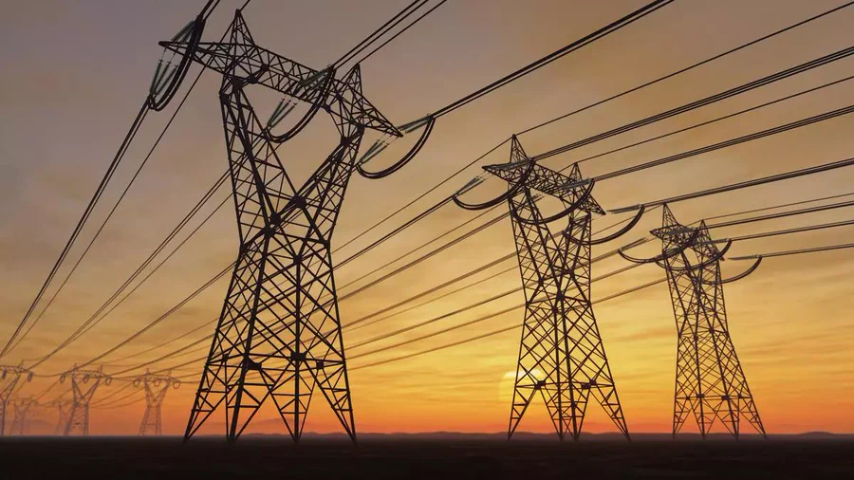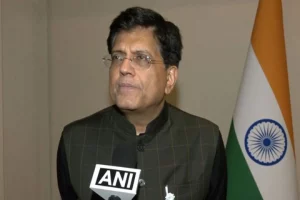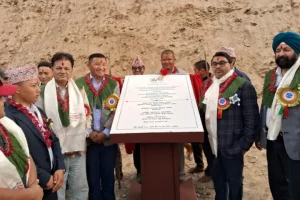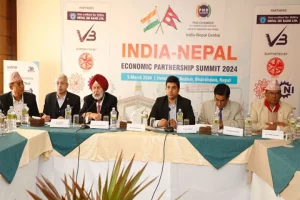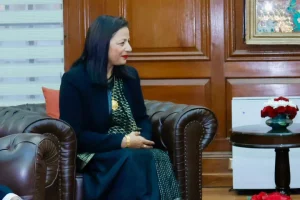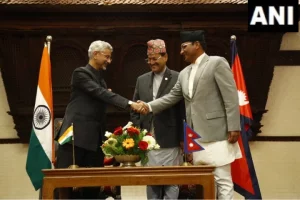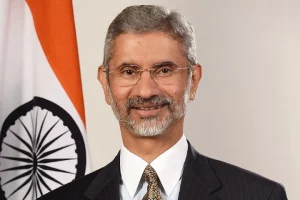KATHMANDU: India has taken a fresh step to integrate Nepal’s electricity with its market by allowing Nepal to sell its power generated by two hydroelectric projects to its real time energy market.
It is the first time that that Nepal has got approval to sell its power in the Real Time Market (RTM) where, according to Nepal Electricity Authority, which is solely responsible for bilateral trade of electricity till date, Nepal can sell power by participating in bids just one hour 15 minute earlier than selling the power.
The Central Electricity Authority of India on Saturday granted approval to sell power generated from 19.4 MW Lower Modi and 24.25 MW Kabeli B-1 hydropower projects in RTM, the NEA said in a press statement on Saturday.
“The approval has been granted to sell starting from October 1 or Saturday midnight,” Prabal Adhikari, power trade director of NEA, told India Narrative. “With this approval, Nepal has also become the first country to participate in India’s RTM from South Asia.”
By amending the ‘Procedure for approval and facilitating import/export (cross border) of electricity by the designated authority’ issued in February 2021, the southern neighbour, on July 31, had opened the door for Nepal, Bhutan and Bangladesh to participate in its real time energy market.
India first opened its energy exchange market for Nepal in November 2021 by allowing the Himalayan country to sell its power in the day-ahead market where quantum of power and prices are determined a day ahead of trading. Southern neighbour has also started buying power from Nepal under a medium-term five-year power deal starting from early September.
In the day-ahead market, Nepal has been allowed to sell upto 522MW while the Himalayan country has been selling 110MW in Haryana state through NTPC Vidyut Vyapar Nigam Limited [NVVN], under a five year deal signed in May, according to NEA.
Now, New Delhi started granting approval to sell Nepal’s power through the third option, i..e. RTM. “Having multiple options of trading minimises the risks,” said Adhikari.
After this approval, the NEA planned to sell a partial quantum of approved volume of the power in the RTM. “Initially, we will sell a limited volume of power in RTM,” said Suresh Bhattarai, spokesperson of the NEA.
NEA officials said that the main advantage of the RTM is that the power system operator can get flexibility in balancing the demands and supply. “For example, Nepal can instantly sell its power if there is excess power generation than estimated,” said Adhikari. “It reduces the risk of power spillage.”
According to the NEA, the southern neighbour granted approval for the two projects to sell power in the RTM for the first time along with renewing the approval granted to them to sell power in the day-ahead market.
The Indian authorities grant one-year approval for the day-ahead market which needs to be renewed every year. Nepal has been seeking an end to the provision of annual renewal arguing that it brings unpredictability in access to India’s vast power market.
Access to the Indian market has been vital for Nepal as the country has been producing excess electricity in the wet season ( rainy season) from its mostly run-of-the river power projects. The country, however, has to import from India in the dry season (winter time) as the power projects produce just around one third of their capacity.
In July, India also opened the door for Nepal to buy power from India’s real time market too. But, according to Adhikari, Indian suppliers need not be determined in advance like in the case of export. “But, the Indian suppliers should have generated the power from the imported coal in the case of coal-fired power generation,” he said.
These developments have taken place at a time when power sector cooperation between the two neighbours is moving forward smoothly in recent years.
The southern neighbour has promised to buy as much as 10,000MW of electricity from Nepal in the next 10 years and two countries have taken a number of measures to boost India’s investment in Nepal’s power sector as well as improve cross border transmission infrastructure to enable evacuation of power across the border.
“Nepal is also expecting the long-term power trade agreement between the two countries, which was initially during Nepali Prime Minister’s visit to India a few months back, to be signed as early as possible,” said Adhikari.






